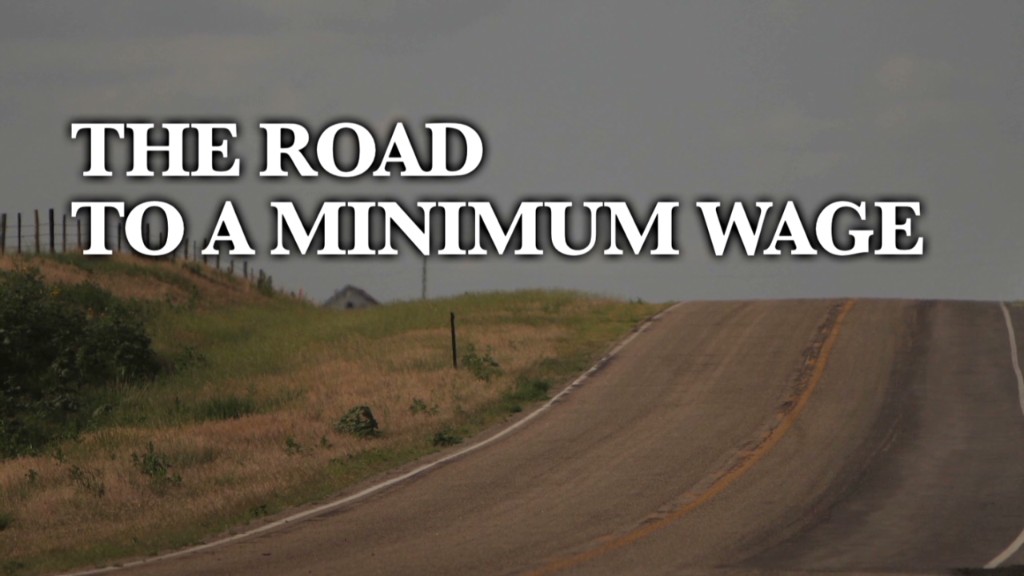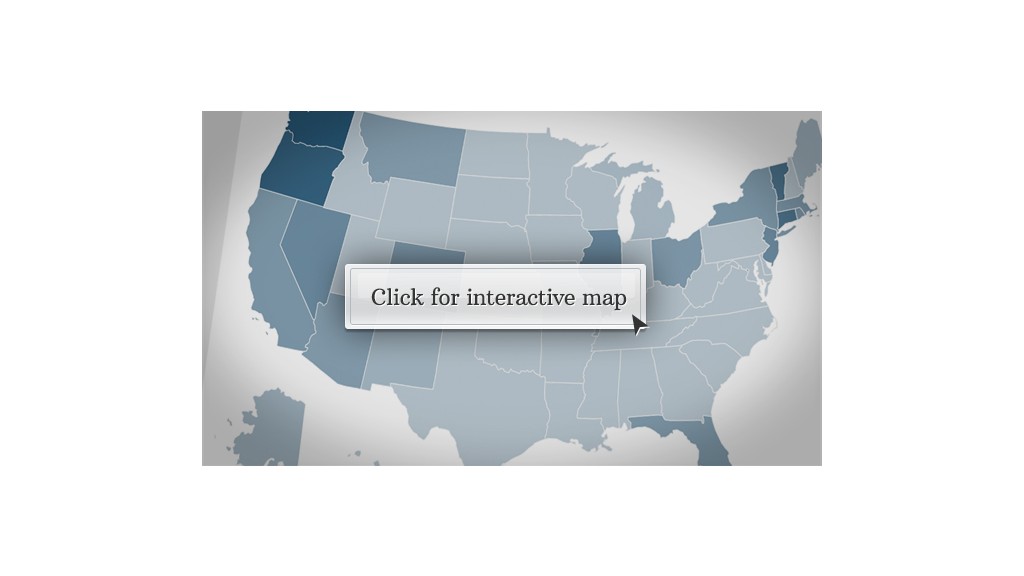Odds remain low that Congress will raise the $7.25 federal minimum wage anytime soon.
But the issue will be revisited in coming days as the Senate takes up a bill to increase it to $10.10 an hour. And President Obama and congressional Democrats plan to push the issue on the campaign trail ahead of the November mid-term elections.
In the meantime, many states have made moves to raise their own minimum wages over the next year.
Related: Why some low-wage workers aren't protected
Generally, workers covered under the Fair Labor and Standards Act must be paid at least $7.25 an hour if the state's own minimum wage is set below that level or if there is no state minimum at all.
But that's not an issue in 21 states plus the District of Columbia, which already have higher minimum wages.
That number will soon grow to 26 states, since lawmakers in Maryland, Minnesota, Delaware, West Virginia and Hawaii have recently approved minimum wage increases.
Maryland will raise its wage floor to $8 by Jan. 1, 2015; $8.25 by July 1, 2015; then by 50-cent increments until it hits $10.10 by July 1, 2018.
Minnesota's $7.25 minimum will increase to $9.50 by 2016 and be indexed to inflation starting in 2018.
In Delaware, the minimum wage will hit $7.75, effective June 1; then it will go to $8.25 by June of 2015.
In West Virginia, the minimum will increase gradually to $8.75 by 2016.
And in Hawaii, legislators just approved a four-step hike from the state's current wage floor of $7.25 to $10.10 by 2018.

Other states and the District of Columbia have also recently approved increases to their wage floors, which already top $7.25.
Connecticut, for instance, will gradually raise its minimum from $8.70 today to $10.10 by 2017.
New York's minimum is set to rise from $8 currently to $8.75 by the end of this year, then climb to $9 by the end of 2015.
California's $8 minimum wage will increase to $9, effective July 1. Then it will rise to $10 by Jan. 1, 2016.
The District of Columbia, meanwhile, is hiking its $8.25 minimum to $9.50 by July, then increasing it gradually to $11.50 by 2016 and indexing it to inflation thereafter.
D.C. joins 12 states that also will index their minimum wage to inflation, according to the National Employment Law Project.
Many cities have been getting in on the act too.
According to NELP, Seattle, San Francisco, New York, San Diego, Oakland, Portland, Maine, and Las Cruces, New Mexico, are among cities currently trying to raise their minimum wages.
But at least one state wants to put the kibosh on such efforts. Oklahoma just passed a law banning cities and towns from raising their local minimum wages.



